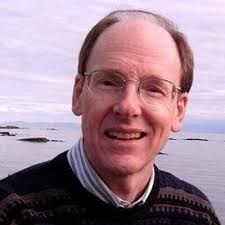 Are you someone who wants to see more positive growth in your life, and change in the world?
Are you someone who wants to see more positive growth in your life, and change in the world?
I believe we��all��do. As Irish writer John O’Donohue once put it, “Change is one of the great dreams of every heart.” Whether it’s creating better, more fulfilling work, improving our relationships or health, reducing poverty, gun violence or global warming, each of us has something we aspire to in life. But��how��to do it – there’s the challenge – because succeeding is often much harder than we expect it to be.��
After 45 years of working for change – in areas such as recycling/environment, creating events on the international level, healing a painful marriage, and facing humiliation so deep that I withheld my core work for decades – here are some insights I’ve learned about what blocks change, and how we can make it more effectively.
Understanding What Blocks Us
Insight #1.����We often try to change others,��������our��life will be better.
Wait a minute; what’s wrong with that? Of course we want people to change! We want them to listen to us, buy what we have, or change their behaviour.
Yes. But think what happens when someone tries to change you – through marketing, pressure tactics, or telling you what to do. Do you feel resistant or angry? If so, it’s only natural... because most of us��don’t want to be controlled or changed. That’s why, when we treat others this way, it frequently leads to more conflict rather than the outcomes we’d like to see.
Insight #2.����Human beings have a split mind:��A positive, loving side��-���Ի�-��a negative, fear-based side.��And both of these shape��our choices, actions and results.
Consider your best moments in life, when you feel friendly, caring, generous and kind. You’re open to new ideas, and enjoy doing what you can to help others. Now think what happens when something goes wrong. You face a crisis, hurt or rejection, or something makes your blood boil. Then a different side of us comes out. We become more self-centred, defensive and critical, perhaps even attacking others in the process.
These two aspects of ourselves – our light and dark sides (as��Star Wars��called them), or our ‘larger and smaller selves’ – are part of human nature. But we’re often unaware which one is guiding our decisions and actions.
Insight #3.����Much of the change we try to make is shaped by our��negative or fearful��side.
Everyone starts with the best of intentions. We want life to be better for ourselves and others. Yet��what we do��is often motivated by some type of need, upset or worry as well. For example:��Not having enough money. Fears about our future. Concerns about the state of the planet. Or frustration with people who won’t change.��When these trigger our fearful mind, we often try to��convince, force, scare or guilt��others into doing what��we��think is best. But this actually leads to more resistance, and less willingness to change, in them. (This is what happened in my first career and marriage, so I write from personal experience ;)
So what can we do to create positive change in more effective and healing ways?
What is the Consciousness ‘Behind’ What We Do?
1)��Positive change comes from connection – among people, and values.
Whether it’s growing a business, a happier relationship or a healthier world, most meaningful change depends on other people. That means we need to��connect��what��we��love, care about and value��with��what matters to��others; and��combine��our core values, instead of choosing between them. In other words, jobs + environment, social purpose + business results, money + fulfillment. I call it building ‘bridges of connection’
2)��“Think��and��feel into the needs of others.”��(Donald Cooper, top business consultant)
To build connection, it’s also really useful to��think, feel��and��listen��into where others are. ‘How is this person doing inside? How are my words/actions affecting them? What do they want & need? Will this idea work for them? How can I give them the best possible experience?’ This process enables us to understand what matters to people and what may be motivating their actions. It gives us specific, practical ways to help them. And it demonstrates that we care.
3)��Change starts with��our��thinking,��not the other person.
For me, creating better results starts first with my��intention:��What do I want to experience, and what experience do I want to give others?��Then a��shift��in mindset, from: Seeing others as separate��to��seeing how we are connected. Getting what I want��to��what do I have to give? Being driven by anger & judgment��to��acting with caring & compassion. It’s also a shift from pushing change��to��inspiring & supporting it. Without these starting points, what I do is being led by my fearful self rather than my loving self.
4)��Listening to our intuition.
Human intellect is very creative and can produce amazing results. However, our intuition – which combines thinking, feeling, sensing and knowing – is far more powerful. It gives us access to a deeper wisdom and ideas that go beyond our own limited perspective. It brings ways to communicate that are more effective. And it guides us into actions which yield more success and fulfillment – for ourselves, others and the greater whole.��
How we connect with intuition varies for each of us. Taking a moment to be still, listening inside, and asking my larger/higher self ‘what to do’ are steps that have helped me.
5)��Gently facing and healing our own blocks.
Past experience has given us much to appreciate. But it’s also left us with painful memories, wounds, losses & limiting beliefs. As a result, we become less trusting and more self-protective. We listen less fully to others, and to our own inner wisdom. And we often hold back from speaking our truths, living what’s in our heart, and fully loving others (and ourselves).
Facing our wounds can be hard. Yet this allows us to heal them, to feel more whole again, and to grow better relationships with the people around us.
How These Approaches Changed Me
When I began this work, I believed that “change” came from doing what I could to make a difference while convincing others to think & act differently. This helped me to feel empowered; but it also created a lot of conflict. What I eventually realized was that many of my actions were being motivated by some type of fear, and not creating the results I really wanted.
Today, I still believe deeply in our power to make life better. However, I now try to initiate change from within, guided by my loving, connected side. And I use my thoughts and actions for change��in ways that��also��heal myself, relationships and the world around me. Having seen the powerful results of this approach, I am more optimistic than ever before – about our ability to create the changes we want and need to see in the years ahead.
____________________________________________________________
 Eric Hellman��is a communications and change coach. His past projects include director of the Centre for Spirituality at Work, co-coordinator of the Sustainability & Spirituality Roundtable (UN World Urban Forum), and writer of the bestselling book��Leadership from Within��(with Peter Urs Bender). Eric also co-founded the world’s first “blue box” recycling program, which helped bring the idea of “making a difference” into common usage.
Eric Hellman��is a communications and change coach. His past projects include director of the Centre for Spirituality at Work, co-coordinator of the Sustainability & Spirituality Roundtable (UN World Urban Forum), and writer of the bestselling book��Leadership from Within��(with Peter Urs Bender). Eric also co-founded the world’s first “blue box” recycling program, which helped bring the idea of “making a difference” into common usage.
��His latest work is called conscious change.��
You can read more articles on our interfaith blog, Spiritually Speaking,
��
Photo of leaves by����on��
��


